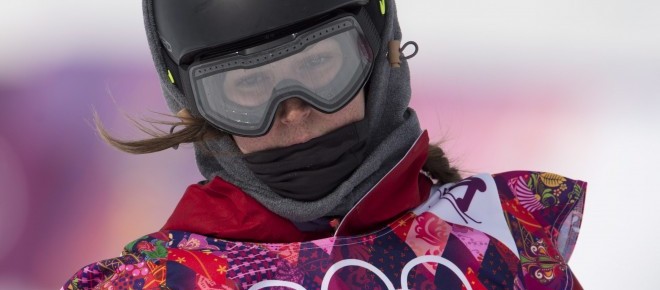Slipping downhill in Sochi
Slopestyle snowboarding not the bonanza of medals for Canada that many had hoped
Share
The new, flashy event that held such promise for Canada has ended on a down-beat, as snowboarder Spencer O’Brien twice lost her balance in the slopestyle final and left the mountain in tears.
“I’m just really disappointed,” the 26-year-old said after gathering herself. “I’ve had a really hard year. I was so excited to be part of Team Canada and after watching [bronze medallist] Mark McMorris I was inspired to try to win a medal. I went for the hardest round, and it didn’t work out today.”
The outcome is a blow not just to O’Brien but to Canada’s vaunted snowboard team, which experts foresaw leaving Sochi with three or even four medals in slopestyle, an X Games mainstay that Canadian boarders long ago embraced.
Instead, the country finishes with only McMorris’s bronze—albeit an inspiring one that the Regina native ground out despite a cracked rib. American Jamie Anderson took gold on the women’s side, ahead of silver medalist Enni Rukajarvi of Finland and Britain’s Jenny Jones, who won bronze.
The hope attached to O’Brien was well-placed: she is the defending world cup champion in the event. But she has waged her own battle against injury lately, returning to the slopes only in January having undergone wrist surgery in May and resting a damaged knee. In Sochi, she fought to a third-place finish in the preliminary runs, which allowed her to skip the semifinal. But she “sketched out” on her first run of the final, half-falling to the snow after attempting on a two-spin trick called a “backside 720.”
When she fell backward on a jump during her second, the merry pack of Canadians here at the Rosa Khutor Extreme Park fell silent, as though a door had suddenly slammed shut.
For O’Brien, it might have. Slopestyle—a punishing display of acrobatic tricks done off railings, pipes and jumps—is the definition of a young person’s sport, and at 26 O’Brien is a veteran. While she’s by no means finished, she would face steep odds to stay in the mix until the flame makes its way to Pyeongchang, Korea in four years.
No wonder, then, why O’Brien sobbed so hard, telling reporters at the base of the course: “I’m really sad that I let Canada down.”
She didn’t, of course. Precious few of these athletes ever truly do, and Sochi holds the promise of more novel sports in which Canada excels.
Still, there will be a stock-taking at Canada Snowboard, said Leo Addington, the freestyle program director, to figure out why the team failed to reap what it had so expertly sown—a star cast of boarders ranging from the youthful Sebastien Toutant to the normally steel-nerved O’Brien.
“As a team we all take a look at our individual parts in this,” Addington said. “As a team we take pride in getting this far, and in what we’ve accomplished. But we’ll go through a review process—both with video and in words—and then we all take a break.”
Addington hastened to put a favourable spin on McMorris’s bronze, saying it “is a medal and we have to focus on the positives.”
But the sense of lost opportunity remains. It will no doubt linger until the next athlete wearing a maple leaf steps onto the podium.
